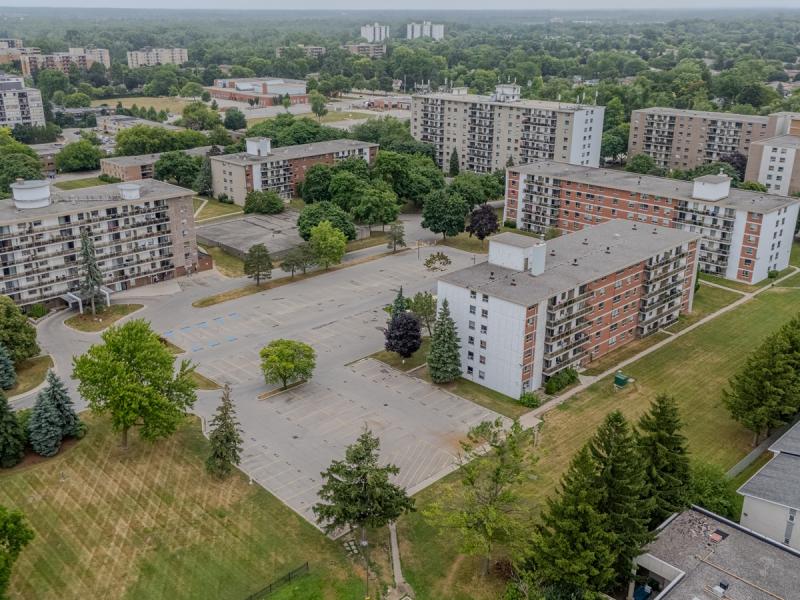
Real estate investment trusts were introduced in the U.S. in 1960 and are active in 41 countries with a combined population of five billion and comprising 83 per cent of global GDP, Real Property Association of Canada CEO Michael Brooks told the audience during the closing roundtable at RealREIT in Toronto.
There are more than 900 listed REITs around the world and total global REIT capitalization has grown from $10 billion in 1990 to $1.9 trillion as of Q4 2022, Brooks noted during the presentation Sept. 12 at the Metro Toronto Convention Centre.
“It's a safe vehicle,” said Brooks. “It allows regular investors to get a piece of real estate without being a rich person.”
Canadian Apartment Properties REIT (CAR-UN-T) president and CEO Mark Kenney and RBC Capital Markets managing director of global equity research Pammi Bir moderated the roundtable, which included Choice Properties REIT (CHP-UN-T) president and CEO Rael Diamond, RioCan REIT (REI-UN-T) CEO Jonathan Gitlin, Sienna Senior Living president and CEO Nitin Jain, and Slate Asset Management founding partner Brady Welch.
The discussion covered a range of topics and examined some of the trends and issues facing Canadian REITs now and moving forward.
The importance of strong balance sheets
“Our strategy is grounded on having a strong balance sheet,” Diamond said, noting Choice recycles capital by selling properties in order to buy other ones.
Gitlin said RioCan can’t control interest rates so it’s concentrating on things it can control, including focusing on operational excellence and cutting expenses.
Welch said the ultra-low interest rates of the past 13 years weren’t normal and the current rates aren’t historically out of line. Real estate owners, however, have to be even more focused on their balance sheets in the current environment.
“You can have the best piece of real estate and put a lot of debt on it and lose a lot of money, and you can have an inferior asset and no debt and make a lot of money,” Welch said.
Jain emphasized the importance of having different levels of government as allies and said government subsidies have helped offset high construction costs in the senior living sector.
“We have a great balance sheet and high liquidity so, frankly, I think there are going to be great opportunities for us to develop properties and look for assets,” Jain said.
Retail portfolios
Canada’s gross domestic product contracted in the second quarter and Bir asked Diamond if there are concerns Choice’s retail portfolio could be impacted by recessionary forces.
Choice derives 67 per cent of its rental income from grocery stores and pharmacies, and other necessity-based retailers are also part of the portfolio, so it’s not heavily reliant on discretionary consumer spending.
The REIT’s tenants are in good shape, Diamond said, so he doesn’t have major worries about them.
Slate owns close to $5 billion worth of what Welch called necessity-based retail, including 400 discount grocery stores in Germany, and he said rents are continuing to grow.
“We've seen so many different economic cycles where certain businesses are not suited to exist and other businesses come and take their place,” Gitlin noted.
“What I love is the bigger backdrop right now where there's simply not enough retail space to accommodate the needs of our retail partners and tenants.”
There will always be businesses that thrive and need to expand, so Gitlin said RioCan will be happy to accommodate them.
RioCan has built its development expertise to maximize the land its shopping centres are on and to diversify and intensify the uses. Development fits well in the REIT’s pursuit of return for its investors.
RioCan also involves joint venture partners on development projects when and where it makes sense.
“We can put that land to work and utilize it to build a mix of uses, where you can take retail and marry it to residential,” Gitlin explained. “By combining the two, you can create an environment that is sort of like 1+1=3.
“You've got a great amenity for your residential tenants and some really well-positioned retail development, and some excellent retail opportunities because we've got built-in shoppers above.”
RioCan continues preparing targeted properties for development intensification by obtaining necessary zoning and making them construction-ready, which Gitlin said takes a lot of time and effort.
However, that doesn’t mean it’s going to start building right away on all the sites – it will develop at the pace the market allows.
Industrial and office portfolios
While Diamond said the rapid industrial rent escalations of the past five years weren’t sustainable, the sector still offers good margins. He doesn’t believe there will be a major slowdown with the asset class.
Developers can still profitably build industrial facilities as long as their land costs are reasonable, according to Diamond.
More employees have returned to offices in Asia and Europe than in Canada and the United States and, while Canada is going through a period of adjustment with hybrid work models and some people working from home at least a few days a week, Welch believes that offices still have a major role to play in society.
Diamond said Choice itself uses a hybrid model. He said its offices are 80 to 90 per cent full from Monday to Thursday, but that number drops down to 20 per cent on Friday.
RioCan has a mandatory three-days-per-week in the office policy for its over 600 employees, and Gitlin said it’s working reasonably well.
He feels real estate companies should be leaders in office attendance, however, since their business is based on getting people into buildings.









